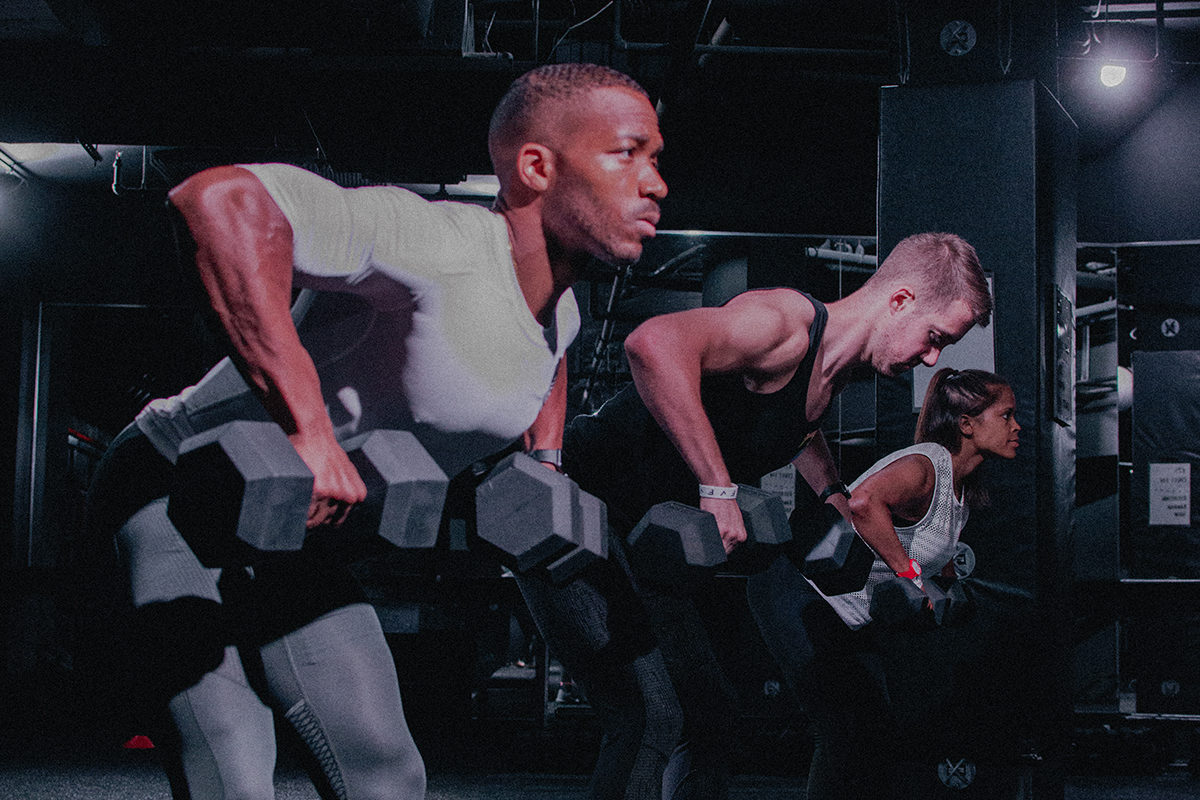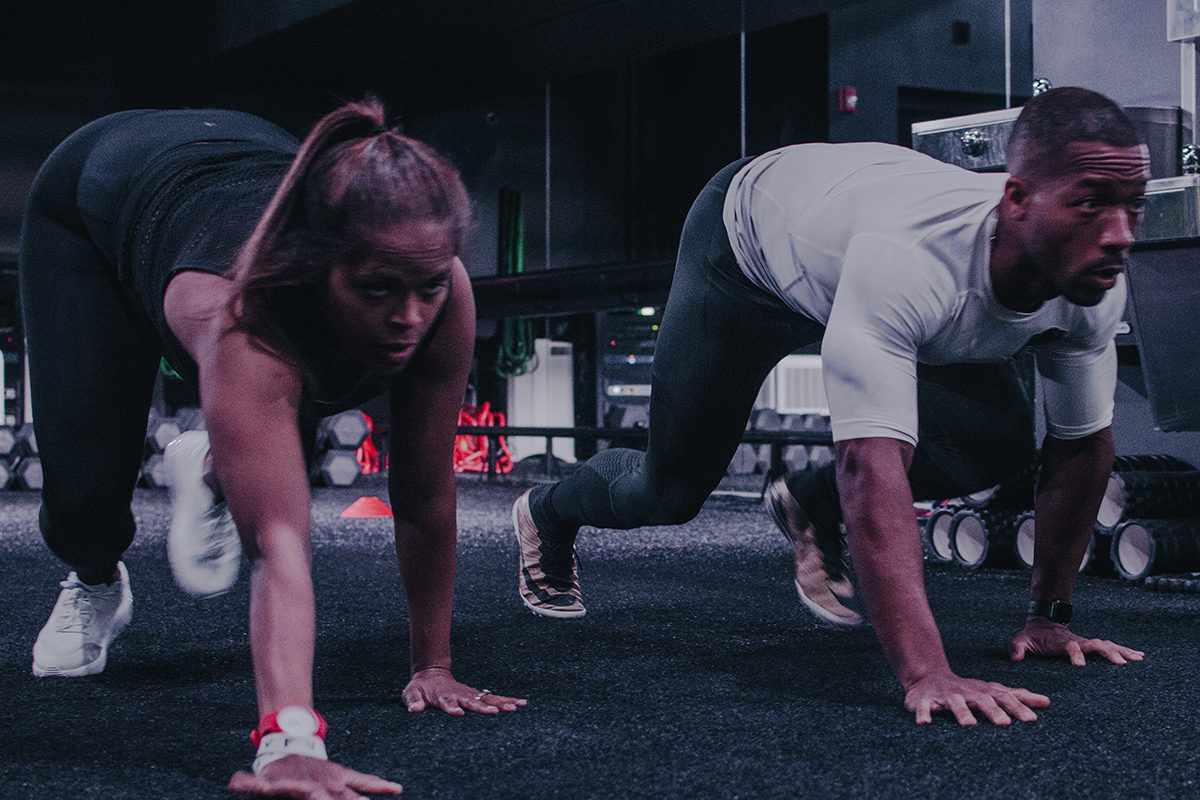Welcome your new coach, Clarence

Over the past month, we saw a new name on the Cut schedule.
Many of you already took one of Clarence’s classes, others worked out alongside him over the past several months. As for the rest of you, consider this your not-so-formal welcome to your new coach.
An athlete his entire life, Clarence drove by Cut each morning on his commute before finally joining us on the turf. He blindly chose Heart Day as his first class, an experience he still describes as “heaven.” Now that he’s joined the other six coaches on the mic, allow us to give a little introduction to your newest coach.
What were you doing before Cut? Did you always work in fitness?
When I started school, being a personal trainer wasn’t even on my radar. I got a degree in counseling and art, starting as a therapist before becoming a dean of an elementary school.
When I started counseling, I was in Bethesda working at a group home with kids ranging from ages 14–20. I offered mentorship to the kids, held counseling sessions for the parents, and tried to get everyone involved in extracurriculars because I know the difference they can make.

That sounds like…one of the toughest jobs on the planet.
It was incredibly difficult. Our mental health system is just as bad as our healthcare system—it’s all about flipping beds and making a profit. You’re working with kids who lived through five years or even a decade’s worth of trauma, and only have 6–9 months to make an impact.
When I see hope in someone, I don’t want to give up. Six months to erase half a lifetime of struggle just isn’t realistic. At the end of the program, the kids have three choices: return to their families, go into foster care, or try independent living. I’d say maybe five percent were ready for that.
These kids came from jail or institutions. That group home was the first time they saw grass in years. Unprepared for the freedom afterward, many returned to an institution or a more restricted program afterward.
Did the stories you heard as a counselor weigh on you mentally?
I’ve always felt one of my gifts is connecting with people, and I thought I could save them. There was this one kid who came to the home, confused about his identity and where he wanted to go in life. He played guitar—like I did—and we connected through music. I had a spare guitar at my house, and we made this deal where if he went a few days without any hiccups, he could go off and play when he wanted.
It’s funny, because that kid was one of my favorites, yet easily the most frustrating case I ever worked with. The moment he made progress, he would tear himself down. He was grabbing for attention, or maybe he was just trapped in an endless cycle.
One time, another jealous kid destroyed the music room where he practiced, and he spazzed out. Sometimes they just tore each other down like that, which was disappointing.
What ultimately made you switch your career path?
The program I worked for wasn’t catered toward the kids. It was more about returning a profit than changing a life.
I left, and transitioned toward education. I thought I could make a greater impact by helping kids earlier in their lives. I took a 50% pay cut, starting as a behavior tech at an elementary school. People were so invested in helping the community, I saw immediate evidence of the change we made in children’s lives.
I worked my way up to become a dean of the school, mentoring kids, getting to know their families, and going to after-school activities. We had a great support system.

When did you first stumble upon fitness? Were you involved in sports when you were younger?
Fitness has always been a part of life. My family is very competitive, praising high energy and a never-quit attitude.
I played soccer, basketball, tennis, and football in high school, but when it comes to family gatherings, there’s nothing we won’t try. We’ll compete in everything from football and basketball to cards and debates. I have a large extended family, and at family reunions, there’s always some sort of competition.
You said earlier that you can’t ever give up on people. Do you feel that side come out when you coach?
Without a doubt.
As someone who believes anyone can turn a corner, I want to be the person who helps push them there. We all have issues and problems. And while most of those problems eventually go away, it’s hard to remember that when you’re in the midst of a storm. I like to remind athletes that no matter what hardships you’re going through, you can let it out right here on this turf.
To me, fitness ties in emotional, mental, and physical strength. Physically, when we take control of our body and lifestyle, we gain control of our minds. That, in turn, directly impacts our emotions. Keeping our emotional health in check allows us to perform better in the studio, and things come around full-circle. When you put that into perspective, building your mind, heart, and relationships is just as important as building your body.
5 Things you might not know about Clarence:
- He can bake almost anything, down to homemade caramel sauce
- He has 42 first cousins on his mom’s side alone
- His shoe collection tops 100 pairs
- He owns 3 guitars
- He binges documentaries (currently stuck on: Chef’s Table)